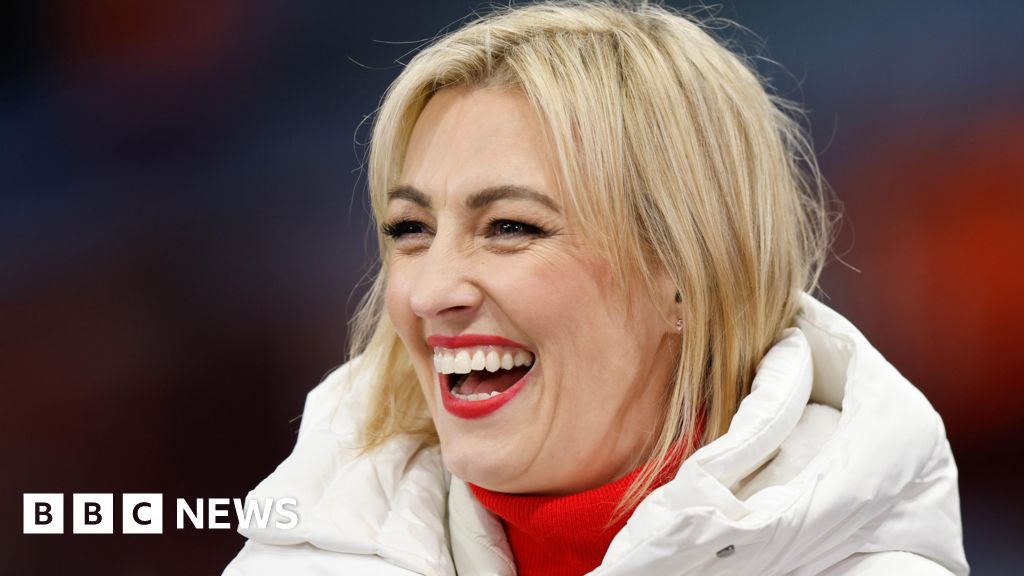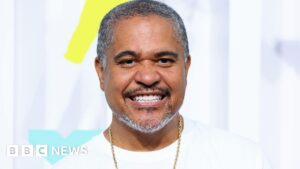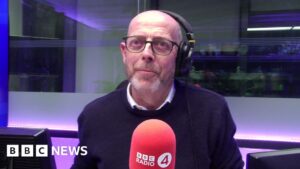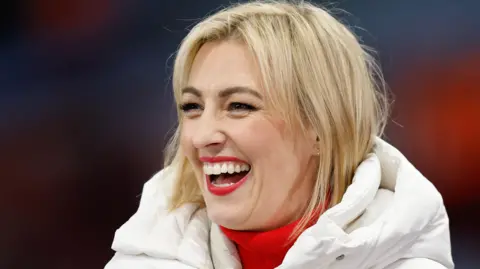 Getty Images
Getty ImagesAfter 60 years, Match of the Day is abandoning its sole presenter format and taking on three people who will, in turn, host the show. It is a departure, but it is far from a new strategy in TV.
Match of the Day has, extraordinarily, had just five main presenters in its history – with Gary Lineker being in the hot seat for the past 26 years.
His replacements, who will take over the BBC One football highlights show next season, are all broadcasters rather than sports stars who have taken up broadcasting as a second career.
Lineker and, before him in the 70s and 80s, Jimmy Hill, were examples of former players who were comfortable taking the lead in the studio, but they were more an exception than a rule when it comes to hosting sports programmes.
There was speculation that footballer-turned-broadcaster Alex Scott would take over the show – but in the end, the names in the press release are all stalwarts of decades of live broadcasting.
The person who might be less familiar to the BBC TV audience is Kelly Cates. But the daughter of Liverpool legend Kenny Dalglish has 26 years’ experience of live TV and radio on Sky and 5 Live. She knows football and she knows television.
Likewise, Gabby Logan has been presenting for 30 years. And Mark Chapman has 29 years under his belt and is already the face of Match of the Day 2 on Sundays.
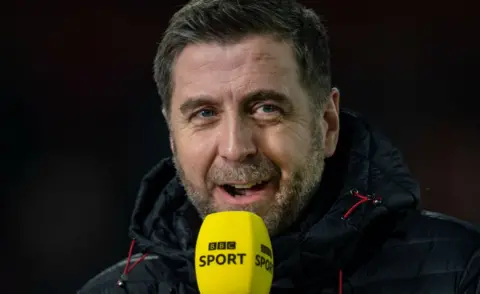 Getty Images
Getty ImagesBy choosing three new hosts, the BBC is following a pattern in TV where a brand or format becomes less associated with a single name.
When Richard Osman decided to leave Pointless, six people were named as his replacements for the daily show (and another eight for the series after that).
Angus Deayton’s presenting role on Have I Got News For You became an ever-changing roster of weekly visitors to the presenting chair.
The One Show may have a core of four main presenters, but the list of people who have over the years done a stint on the green sofa is a long one.
Match of the Day has now been handed over to some very safe hands.
And based on their track records, none of them look likely to attract the sorts of headlines that Lineker has had in recent years.
There is good reason to be careful. At a time when TV ratings have been falling year after year, Match of the Day has been holding steady.
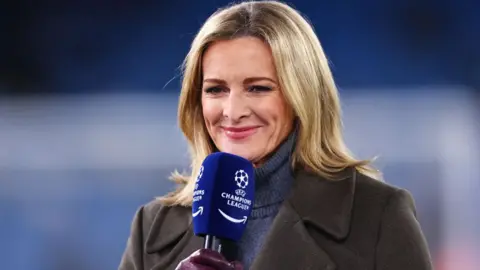 Getty Images
Getty ImagesIn an era when every Premier League match is televised somewhere and social media is awash with clips of goals as soon as they happen, there was always a question about whether anyone would still want to watch a highlights show.
However, over the past five years, Match of the Day’s audience of just under 3.5 million has remained almost unchanged. Over a season, the BBC says 33 million people will tune in at some time to one of the Match of the Day programmes.
The resilience of Match of the Day has not gone unnoticed, and with the current rights deal due to continue until the 2028/29 season, this is a brand the BBC hopes to grow.
There have been reports that the corporation will use the shake-up as an opportunity to use the MOTD name more widely on its online platforms.
Given that the BBC has struggled to compete in an era of rapidly escalating costs for sports rights, it dearly wants to hang on to an audience that may not consume at lot of the rest of the BBC’s output.
There is also a good reason the Premier League wants the highlights programme to succeed – about half of the league’s domestic TV audience see their football only on the BBC.
It is a shop window that helps keep top flight football central to the national conversation.

